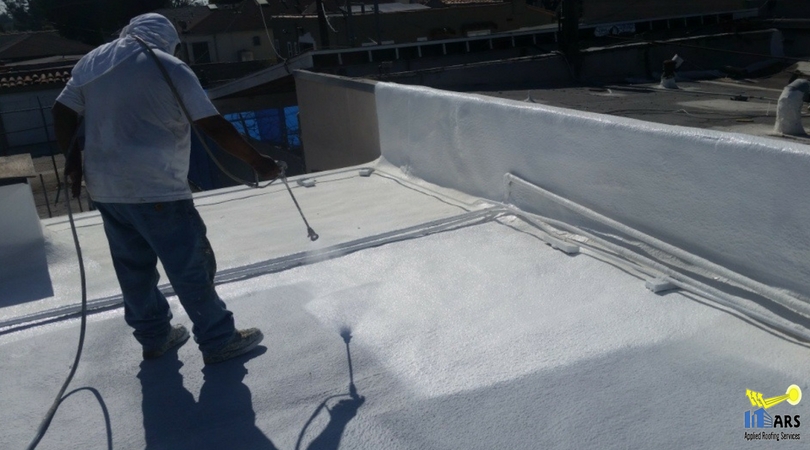


Spray polyurethane foam roofing or (SPF) is a roofing system that is designed to offer the best in both weather protection and sustainability. An SPF roofing system has negligible drawbacks when compared to its utility and it is usually favorable for use on most types of buildings. It provides long-lasting results with minimal maintenance or repairs.
Spray foam roofing has many benefits that makes it a viable alternative to other roofing methods. A few benefits of SPF roofing to homeowners include:
Easy to Install - Professional SPF roofing involves easy and quick application of the foam and coating.
Control Potential Leaks - All the seams and grooves are sealed by the application of liquid SPF mixture to reduce the possibility of leaks.
Energy Efficient Alternative - Lower the energy cost during every season and help to maintain the internal temperatures of the building.
Easy to Maintain - Requires very minimal upkeep after installation and can prove to be a longstanding option with correct maintenance and semi-annual inspections.
Allows Waterproof Roofing - Polyurethane foam allows for leveling out the roof to reduce the possibility of damage due to water accumulation.
Offers Sustainable Roofing - SPF roofs are renewable and cost-effective as they produce no waste when the foam is re-applied because their application involves negligible stripping of old roofing.
Environmentally Friendly Option - Being free from ozone-depleting CFCs (Chlorofluorocarbons) and producing minimal VOC's (Volatile Organic Compounds), SPF is environment-friendly.
Spray foam roofing also has its drawbacks. If you have questions, you should always bring them up to your contractor to make sure you still have the most accurate information possible. Drawbacks can include:
Chances of Overspray - The potential to overspray an area or the spray being carried by the wind onto other surfaces is always there.
Requires Annual Maintenance - SPF roofs must be inspected at least twice a year even if there is no apparent damage.
Needs Accurate Repairs - SPF roofs are extremely vulnerable to puncture and other types of damage; only certain types of materials can be used to make necessary repairs.
Has Limited Installation Window - Installation is determined by the weather, and extreme temperatures and moisture need to be avoided.
While weather and wind seem to be the determining factors when it comes to the drawbacks of SPF roofing, they are minimal when compared to the benefits.
SPF roofing offers distinct advantages over other roofing materials. Before you make a decision, however, make sure to talk to your roofing contractor to find out if it is a feasible option for your building. For many, it's an investment that will pay itself off in both time and money.
Also Read: Insulation Basics of Spray Foam Roofing You Should Know Also Read: The Versatile Benefits of Spray Foam Roofing